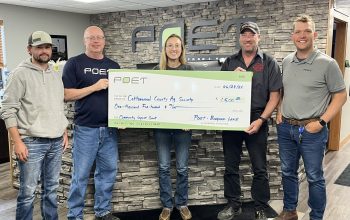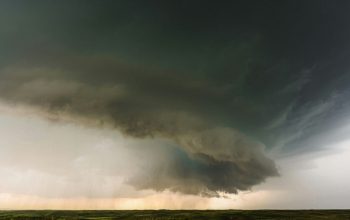Part 2 of 2
Myndi Grimsley of Eagle Grove has had three grandparents diagnosed with Alzheimer’s disease. She has seen first-hand what this form of dementia can do not only to the person who has it, but to the family and friends who love them. It steals the victims thoughts, their memories, and their ability to complete daily routine tasks. But Grimsley is determined to do whatever she can to help other families and their loved ones win the battle of this disease by joining forces with the Alzheimer’s Association and their Walk to End Alzheimer’s, so they can provide care, support, research, and ultimately, the goal of one day finding a cure.
“I had an awesome co-worker at my previous employer that asked if I wanted to walk on the company’s (Walk to End Alzheimer’s) team. That was almost 10 years ago,” she explained.
She’s been involved every year since (except the year she gave birth to her son) whether it be just a walker, a team captain, committee member or, as in the past two years, chair of the End Alzheimer’s Walk. While there are 19 walks in all across the state of Iowa, Grimsley is chairing the one in Fort Dodge which will be held October 2 at the Fort Dodge Middle School. Although it’s a lot of work, she’s excited about the part she plays in the local event.
“The committee is usually pretty small, so for people to be involved for as long as I have is kind of uncommon,” said Grimsley. “Sharing your story and getting involved is emotionally hard for people, so they don't tend to stick around year-after-year.”
Grimsley is hoping that there are a few of you who, whether you have a family member or friend who has been diagnosed with Alzheimer’s/dementia, or whether you just want to support the cause, will join her this fall in Fort Dodge. She said it’s really quite easy to participate.
• You can register (online) as a team or as an individual walker.
• Fundraise by asking family and friends to donate towards your walking.
• There is also an app you can download on your phone with fundraising ideas.
• Want to be a Team Captain? The app makes it very easy for you to email or post on Facebook or keep track of your team and fundraising.
• Show up and walk.
Grimsley noted that the Walk to End Alzheimer’s is somewhat different from other walking fundraisers like Relay for Life for example. The walk is actually very short, not hours or days long.
"(The walk) is more about support. We don't, unfortunately, have a survivor of Alzheimer’s, so we can't celebrate…YET! I'm hoping soon that we will have that,” said Grimsley optimistically.
A special feature of the Walk to End Alzheimer’s is the “Forget Me Not” flowers. Each flower color represents something specific to Alzheimer's: loss (purple), caregiver or supporter of someone with Alzheimer’s (yellow), and supporter of the cause and a vision of a world without Alzheimer’s (orange). A blue flower is given to those who actually have Alzheimer's. Two years ago, they added a white flower to represent the first survivor.
“They don't yet have a survivor, but it’s a very touching moment that has a child holding that flower as a representative of our first survivor yet to come,” said Grimsley.
While the basic idea of the event is, of course, to raise money for support and research, Grimsley wants to stress that it’s also just as much about providing the opportunity for loved ones to share their story and share support for those facing or caring for Alzheimer’s patients.
There are a couple of things Grimsley wants people to know about Alzheimer’s that she has learned from her experience with it:
“I want people to talk about it. I think that Alzheimer’s and other dementia still carry a little bit of a stigma. I hear people whisper ‘I think she's getting confused.’ This disease is bigger than we realize,” she said.
While someone may have Alzheimer’s or dementia, some of them may still know and understand you are talking about them and the disease they are struggling with.
She also wants you to know that if you are caring for someone, or know someone with Alzheimer’s, there’s help for every role that comes with this diagnosis. She encourages you to log onto the Alzheimer’s Association website, www.alz.org, which offers support groups (currently virtual) webinars, information, 24-hour hotlines, and so much more.
"I just want people to know the website and the help is there. Once your loved one is diagnosed, there's just this mountain of decisions to be made, and as they progress through (the disease) the decisions don't get any smaller…the Alzheimer's Association really does help,” said Grimsley. "Nothing about the disease is easy, but the website can help support and guide you."
There is currently no way to prevent, cure, or even slow Alzheimer’s, but the American Alzheimer’s Association continues to work towards finding answers. In addition, Grimsley said the Association has been instrumental in elder abuse awareness. They have statistics of how often it happens and how little people get convicted of it. They are pushing a bill that addresses increased penalties and kinds of abuse that can be prosecuted.
"We all want to know that our loved ones, when we hand them off to a care facility, are being well cared for'” said Grimsley.


